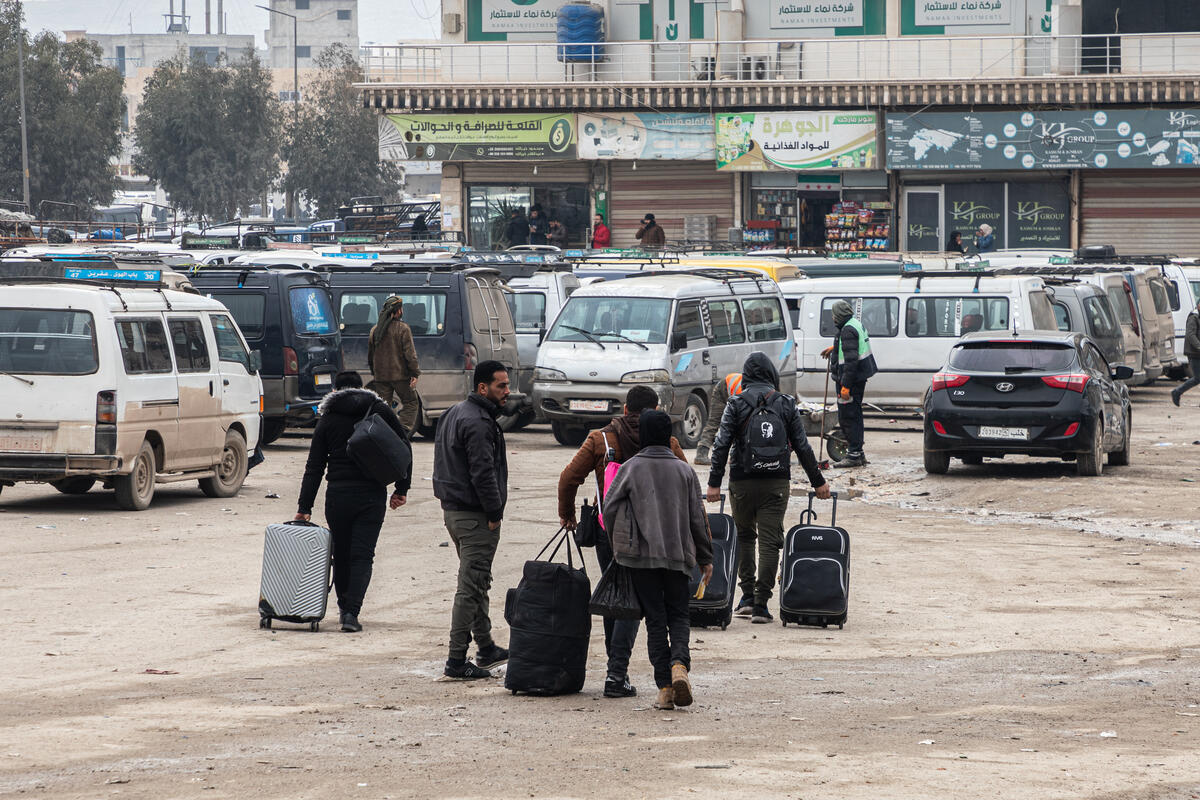UN agencies warn of spiraling Sudan crisis as civilians face grave risks and famine threat grows amid access barriers
UN agencies warn of spiraling Sudan crisis as civilians face grave risks and famine threat grows amid access barriers

PORT SUDAN – The humanitarian crisis in Sudan continues to spiral, with millions of people in desperate need of assistance. The conflict has displaced over 11 million people, both internally and across borders, while pushing millions more into extreme vulnerability, particularly children. Access to basic services – such as safe water, health care, and shelter – is severely limited. As we witness the collapse of vital infrastructure, the international response must intensify immediately to match the overwhelming scale of need.
An estimated 13 million children are facing acute levels of food insecurity. Fourteen regions across the country are teetering on the brink of famine, and in Zamzam camp in North Darfur, famine conditions have already been confirmed. There are 3.7 million children under five projected to suffer from severe acute malnutrition this year alone who are in urgent need of life-saving treatment. These children are already weakened by hunger. If not reached soon, these children are 11 times more likely to die from preventable diseases than their healthier peers inside Sudan.
A key issue in delivering critical aid has been ensuring safe, unimpeded access to communities in need across all areas of Sudan. UN agencies responsible for the delivery of aid and the provision of technical assistance need to be given permission from Government authorities to have a sustained presence in all affected communities. The reality on the ground remains fraught with logistical and administrative barriers. These access constraints are hindering the UN's ability to deliver life-saving supplies and protection to the most vulnerable communities, and effectively monitor the delivery of aid to ensure that it reaches the intended recipients.
While appreciating the assurances of cooperation, including the opening of Chad’s border for humanitarian supplies, it is critical to operationalize these commitments. We call for the re-establishment of UN offices in Zalingei, Central Darfur and Kadugli, South Kordofan. Simplifying and expediting approval procedures for aid shipments and personnel, including facilitating cross-line access is also critical, as any delay – such as those involving essential food, health, nutrition and other essential relief supplies – results in devastating consequences. Humanitarian partners must be able to ensure the effective and efficient delivery of supplies and humanitarian assistance to those in need. The Government of Sudan and all other parties to the conflict should avoid burdensome administrative requirements and facilitate the delivery of supplies without delay to communities in need.
Sudan is now home to one of the world’s largest and most pressing displacement crises. The situation for internally displaced persons (IDPs) and refugees is particularly dire, with more than 10 million people displaced from home in Sudan – multiple times – and over 800,000 refugees hosted within its borders. As we saw in both Port Sudan and Kassala, those forced from their homes have specific vulnerabilities, enduring extreme hardship in makeshift shelters, and lacking even the most basic services and face severe protection risks. Furthermore, refugees will require sustained assistance with regard to protection and legal advice. The UN is committed to working alongside the Government of Sudan and other entities to ensure that humanitarian assistance reaches these communities without further delay. We also call for cross-border operations between Chad and Sudan to be strengthened, allowing aid to reach communities in urgent need of support.
Despite these immense challenges, we reaffirm our commitment to supporting the people of Sudan and all those impacted by the conflict. UNHCR, UNICEF, and our partners are working tirelessly – in an inclusive manner – to provide critical services, from emergency shelter and water to education, health care, and psychosocial support. However, without sustained international backing, including attention for a political way to address the conflict and the removal of bureaucratic and security obstacles, the situation will continue to worsen.
Above all, the protection of civilians must be paramount. We urgently call on all parties to the conflict to respect international humanitarian law and prioritize the protection of civilians, who continue to face unimaginable suffering. Civilians – especially women and children – are enduring grave violations of their rights, including sexual and gender-based violence, exploitation, and attacks on their safety and dignity. These heinous acts, including the use of sexual violence as a weapon of war, must end immediately. Humanitarian assistance alone cannot resolve this crisis; we must also ensure that those most vulnerable are shielded from further harm. The people of Sudan need our collective action now. We must respond with the urgency and scale that this crisis demands.
About UNHCR
UNHCR, the UN Refugee Agency, is a global organization dedicated to saving lives, protecting rights and building a better future for people forced to flee their homes because of conflict and persecution. We lead international action to protect refugees, forcibly displaced communities and stateless people.
Follow UNHCR on X (Twitter)Link is external, FacebookLink is external, InstagramLink is external, and YouTubeLink is external.
About UNICEF
UNICEF works in some of the world’s toughest places, to reach the world’s most disadvantaged children. In more than 190 countries and territories, we work for every child, everywhere, to build a better world for everyone. For more information about UNICEF and its work, please visit the UNICEF websiteLink is external.
Follow UNICEF on X (Twitter)Link is external, FacebookLink is external, InstagramLink is external, and YouTubeLink is external.
For more information, please contact:
UNHCR
- In Sudan, Assadullah Nasrullah, nasrulla@unhcr.org, +254 113 676 413
- In Geneva, Olga Sarrado, sarrado@unhcr.org, +41 79 740 2307
UNICEF
- Mira Nasser, UNICEF Sudan, +970598568428, minasser@unicef.org
- Joe English, UNICEF New York, +1 917 893 0692, jenglish@unicef.org






